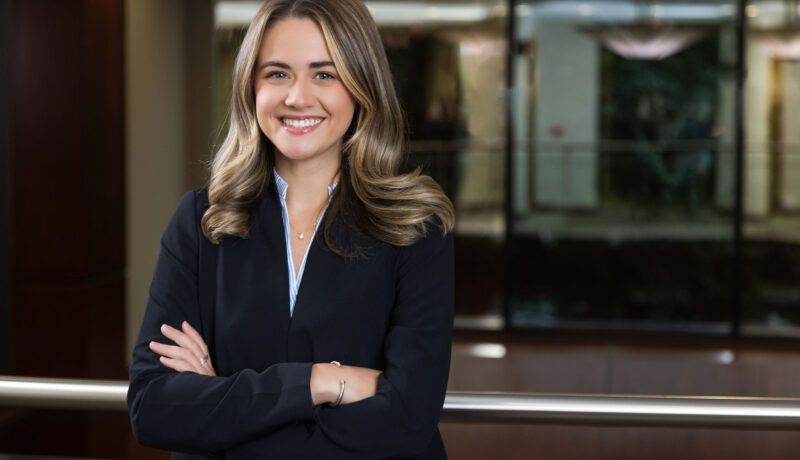Targeting the Financial Needs of Women Physicians

Financial wellness is truly something that is defined by the individual, as everyone has a unique set of wants and needs. Everything from income level, career path, and family structure may all contribute to how your personal finances are organized — but it can often go even deeper than that. In particular, I have seen throughout my career that women have their own set of unique needs that sets them apart financially and, in turn, brings them together as a community. Recognizing these common themes, the Curi Capital [i] team recently hosted a webinar specifically focused on women physicians and how they define financial wellness. I’d like to take a moment to share with you some of what we discussed, and what strategies you can use to improve your financial wellness.
Building Confidence
In general, women cite feeling less financially prepared, savvy, or confident when it comes to managing their finances, as compared to men. (1) We know that women certainly can and do manage their finances, but how to address the feelings of low confidence that persist? Financial education, awareness, and empowering action are key to developing that confidence.
Working with a financial advisor is one way to gain traction by building education and awareness. A financial advisor can help you organize where you are today, understand the path you are on, and visualize how your finances will endure the potential life transitions ahead. Partnering with an advisor means you are still in control of your finances, but with a subject matter expert by your side to do the strategic thinking. And your empowering action might look like contributing to a “rainy day” or “fun savings” account, maxing out contributions to your Roth IRA and 401k, budgeting investment risk, or creating a disability or long-term care plan. Even seemingly simple steps can go a long way toward building confidence as you achieve progress toward your goals over time.
Women Can Overcome the Wage Gap
Just like their non-physician peers, women in medicine face a pay gap as compared to their male peers. When examining the physician gender pay gap by specialty, a 2021 study showed that there were no medical specialties in which women earned the same or more than men. All specialties had gender pay gaps over 10%. And as a result, female physicians earn an estimated $2 million less than male physicians over a simulated 40-year career. (2)
Aside from advocating for fair compensation, how can the gap be addressed? You would think that the consequence of earning less is that you would automatically build less wealth over time. While that is true to some degree, a Vanguard study showed that women tend to save a higher percentage of their earnings. (3) On top of that, women also tend to have higher investment returns than men, according to a 2021 Fidelity Investments Report (4). So, while women physicians may face a pay gap, they can and do compensate by saving more of their earnings and investing with potentially better results.
Sandwich Caregivers and Burnout
One topic I hear about frequently from female physicians is burn out. Physicians are our society’s scientists and caregivers. And in many cultures, women are also counted on to be family caregivers for children and aging family members—resulting in what we call “sandwich” caregiving. As a result, some women cite concerns over combing parenthood and work. (5) And for female physicians in particular, this may contribute to feeling overworked. (6)
How does this translate into a financial need? Many female physicians cite their own “sandwich” caregiving lifestyle as a motivation for wanting a financial plan that includes either self-funding or insurance for their own potential custodial care needs. Just recently, I was told, “I don’t want my son and daughter to be juggling my declining health while taking care of their own families and careers.” Because women tend to live longer than men, (7) they are disproportionately more likely to need custodial care. (8) Before retirement begins, it’s important to create a plan for how to fund potential long-term care needs while also prioritizing other important goals like travel and legacy gifts.
It was clear from our webinar conversation that women physicians face some common threads in their careers when it comes to financial and life planning—and equally clear that they’re eager for guidance tailored to their unique needs and opportunities. The right financial advisor can be your partner to help you build confidence in your plans for today and tomorrow. And this, in turn, can help make the challenges facing women physicians that much more manageable. Be sure to reach out today if you have questions.
(1) https://www.usbank.com/about-us-bank/company-blog/article-library/us-bank-survey-says-women-are-leaving-money-and-influence-on-the-table.html
(2) Health Affairs, December 2021 https://www.healthaffairs.org/doi/10.1377/hlthaff.2021.00461
(3) https://www.wsj.com/articles/male-investors-vs-female-investors-how-do-they-compare-1430709406
(4) https://www.fidelity.com/bin-public/060_www_fidelity_com/documents/about-fidelity/FidelityInvestmentsWomen&InvestingStudy2021.pdf
(5) Medscape’s “Women Physicians 2020: The Issues They Care About”
(6) Medscape 2023 Physician Compensation Report
(7) https://www.ssa.gov/oact/STATS/table4c6.html
(8) https://aspe.hhs.gov/reports/long-term-services-supports-older-americans-risks-financing-research-brief-0
Curi RMB Capital, LLC (“Curi RMB”), is an investment adviser in Chicago, IL with other large offices in Raleigh, NC, Denver, CO, and Milwaukee, WI. Curi RMB is registered with the U.S. Securities and Exchange Commission (SEC) under the Investment Advisers Act of 1940. Registration as an investment adviser does not imply any specific level of skill or training and does not constitute an endorsement of the firm by the SEC. A copy of the firm’s current written disclosure brochure filed with the SEC which discusses, among other things, Curi RMB’s business practices, services, and fees, is available through the SEC’s website www.adviserinfo.sec.gov.
The opinions and analyses expressed in this newsletter are based on Curi RMB Capital, LLC’s (“Curi RMB”) research and professional experience are expressed as of the date of our mailing of this newsletter. Certain information expressed represents an assessment at a specific point in time and is not intended to be a forecast or guarantee of future results, nor is it intended to speak to any future time periods. Curi RMB makes no warranty or representation, express or implied, nor does Curi RMB accept any liability, with respect to the information and data set forth herein, and Curi RMB specifically disclaims any duty to update any of the information and data contained in this newsletter. The information and data in this newsletter does not constitute legal, tax, accounting, investment or other professional advice.
[i] As of January 1, 2024, Curi Wealth Management, LLC, doing business as Curi Capital, merged with RMB Capital Management, LLC and became Curi RMB Capital, LLC. Please click here for more information on the merger.



